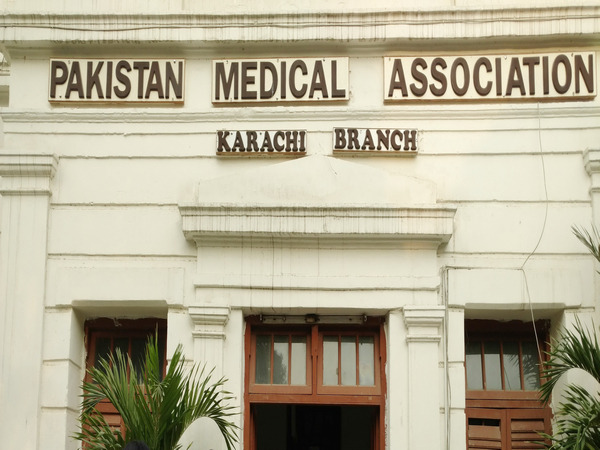Karachi [Pakistan], March 17: Expressing grave concerns over the shortage of different medicines including life-saving drugs, the Pakistan Medical Association (PMA) demanded the government to ease the process of opening letters of credit (LCs) for drug manufacturers, Dawn reported.
In a statement issued here on Thursday, the PMA said that it had already warned the government that the failure to open letters of credit (LC) for the import of raw materials would result in an acute shortage of medicine.
The PMA demanded that the government take appropriate measures immediately to save the lives of innocent people in the country.
The drug makers have blamed the financial system for the crisis in the healthcare system by claiming that commercial banks are not issuing new Letters of Credit (LCs) for their imports.
The deteriorating economic crisis has badly affected the health care system, the pharmaceutical industry is struggling to replenish its supplies amid a shortage of essential life-saving drugs and other surgical instruments.
Faced with chronic shortages of medical equipment and anaesthetics, doctors at major hospitals are forced to stop performing surgeries.
The lack of forex reserves in the country has affected Pakistan’s capacity to import the required medicines or the Active Pharmaceutical Ingredients (API) used in domestic production.
As a result, local pharmaceutical manufacturers have been forced to slash their production as patients suffer in hospitals. Doctors are forced to not perform surgeries due to the shortage of drugs and medical equipment.
As per Pakistan media reports, the operation theatres are left with NIL stock of anaesthetics needed for sensitive surgeries, including for heart, cancer and kidney. The situation might also result in job losses in hospitals in Pakistan, further increasing the miseries of people.
Pakistan medicine manufacturing is highly import-dependent with almost 95 per cent of the drugs requiring raw materials from other nations, including India and China. For most of the drug manufacturers, the imported materials have been held up at the Karachi port due to a shortage of dollars in the banking system.
The drug manufacturing industry has said that the cost of making drugs is constantly increasing due to rising fuel costs and transportation charges and the sharp devaluation of the Pakistani rupee.
Recently, the Pakistan Medical Association (PMA) called for the intervention of the government to prevent the situation from turning into a disaster. However, the authorities rather than taking immediate steps are still trying to assess the quantum of the shortage.
Drug retailers in Pakistan’s Punjab have said that government survey teams carried out field visits to determine the shortage of crucial medicines. The retailers revealed that the shortage of some common but important drugs is impacting the majority of the customers. These medicines include Panadol, Insulin, Brufen, Disprin, Calpol, Tegral, Nimesulide, Hepamerz, Buscopan and Rivotril, etc.
Earlier in January, Pakistan Pharmaceutical Manufacturers’ Association (PPMA) Central Chairman Syed Farooq Bukhari said that some 20-25 per cent of pharmaceutical production stands sluggish at present, The Express Tribune reported.
He further said, “The worst medicine crisis would erupt in the country if current policies (ban on imports) remain in place for the next four to five-week.
“Earlier this month, the Pakistan government and the IMF staff concluded the ninth review of the USD 6.5 billion bailout package without a staff-level agreement. The Pakistani government had hoped that they would be able to convince the IMF about implementing the conditions in a gradual manner. However, Islamabad’s hopes were dashed during the IMF mission’s 10-day visit to Pakistan.









































